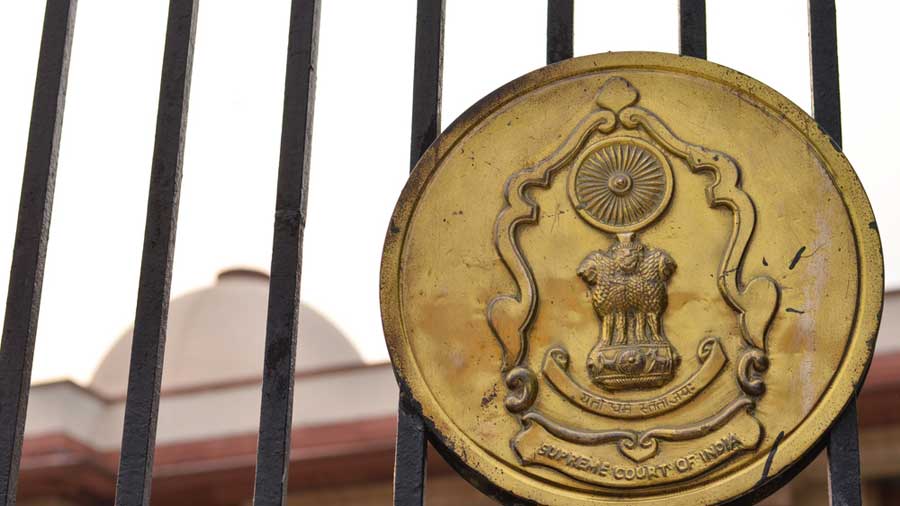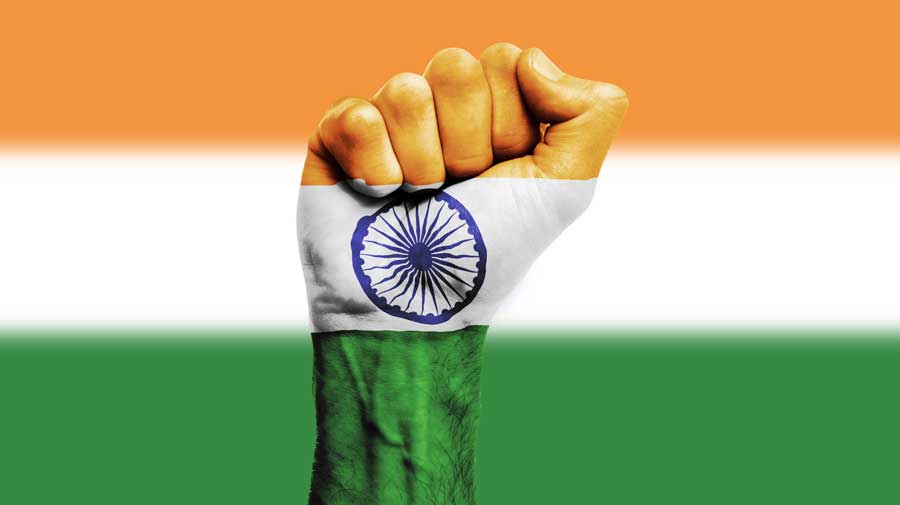The Supreme Court on Thursday stressed the importance of the media covering court proceedings and not just written orders, formalising its earlier refusal to entertain an Election Commission plea to gag the media from reporting courts’ oral observations.
“(The) freedom of speech and expression extends to reporting the proceedings of judicial institutions,” the bench of Justices D.Y. Chandrachud and M.R. Shah ruled.
“Citizens are entitled to ensure that courts remain true to their remit to be a check on arbitrary exercises of power. The ability of citizens to do so bears a direct correlation to the seamless availability of information about what happens in a court during the course of proceedings. Therein lies the importance of freedom of the media to comment on and write about proceedings.”
On Thursday, the apex court came out with the “balanced” written order that it had promised on Monday while orally declining to entertain the poll panel’s plea to restrain high courts from making stinging oral observations and the media from reporting them.
The bench had also refused to restrain the country’s police from registering murder cases against Election Commission (EC) officials on the basis of oral observations by Madras High Court that had blamed the poll panel for the Covid resurgence.
Madras High Court had on April 26 castigated the EC for allowing large poll rallies and observed orally that the commission was “singularly responsible for the second wave of Covid-19” and that the EC “should be put up for murder charges”.
While reaffirming Monday’s observations, Thursday’s written apex court order emphasised the importance of the country’s “open court system” and of media scrutiny to the preservation
of citizens’ constitutional rights.
The Supreme Court order said that except for in-camera proceedings and matters like child sex abuse or marital privacy, India’s legal system was founded on the principle that open access to courts was key to safeguarding constitutional freedoms.
“Public scrutiny is crucial to maintaining transparency and accountability. Transparency in the functioning of democratic institutions is crucial to establish the public’s faith in them,” the judgment said.
“There are multiple ways in which an open court system contributes to the working of democracy. An open court system ensures that judges act in accordance with law and with probity. Public scrutiny fosters confidence in the process. Public discussion and criticism may work as a restraint on the conduct of a judge.”
The media’s right to report court proceedings is “also a part of the process of augmenting the integrity of the judiciary and the cause of justice as a whole”, the court said.
HC ‘harsh’
However, the apex court disapproved of the high court’s observations, saying the remarks were “harsh” and “the metaphor inappropriate”.
It asked the high courts to exercise caution while making off-the-cuff remarks in open court.
“We hope the matter can rest with a sense of balance which we have attempted to bring. These oral remarks (by the high court) are not a part of the official judicial record, and therefore the question of expunging them does not arise,” the bench said.
Calcutta FIR
The bench reaffirmed its stand of Monday that the poll panel was free to approach Calcutta High Court and seek quashing of the culpable homicide FIR against deputy election commissioner Sudeep Jain, who was in charge of the Bengal elections.
The case was registered in Calcutta two days after the Madras High Court observations, on a complaint from the wife of Trinamul candidate Kajal Sinha who had died of Covid.
Justice Chandrachud, who wrote the judgment, noted that the complaint made no reference to Madras High Court. He described as “misconceived” the EC’s plea for a general bar on murder FIRs against its officials.











